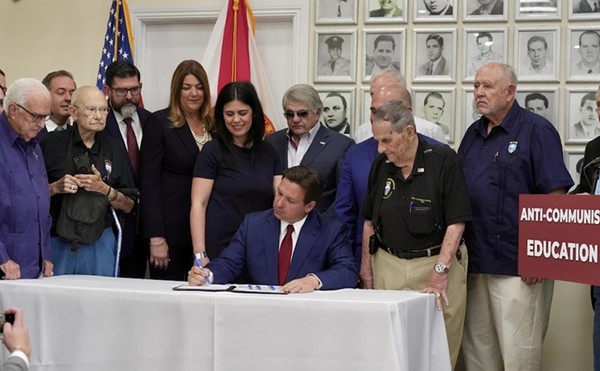I entered into a civil union with another woman in Vermont in 2000. My ex and I were together until 2003, when we decided to go our separate ways. It is now 2015, and my new partner (who is male) and I are expecting a baby and talking about getting married. We live in Texas. I know that there are ways to dissolve my civil union in Vermont, but I can't get ahold of my ex to sign the forms. Neither do I want to, because frankly it was an abusive relationship and I still bear emotional scars. She threatened my life, encouraged my suicidal thoughts and told me I was a loser who didn't deserve to live. She used to stalk me until she finally moved back to the Pacific Northwest. Is there a way to dissolve my civil union without having to directly contact my ex?
Undoing Niggling Compact In Vermont Isn't Legally Uncomplicated
Way, way back in 1999, before same-sex marriage was legal anywhere in the United States, the Vermont Supreme Court ruled that same-sex couples were entitled to the same "benefits and protections" as opposite-sex couples. Vermont's highest court ordered the state legislature to come up with a solution. Instead of allowing same-sex couples to marry – a simpler fix legislatively but a more explosive one politically – in 2000, Vermont's lawmakers created a separate-but-equal compromise, aka "civil unions." Full marriage equality came to Vermont in 2009, making it the fourth U.S. state to allow same-sex couples to wed.
"Our marriage law didn't automatically convert CUs to marriages," said Elizabeth Kruska, an attorney in Vermont who handles family law. "And although civil unions were (and are) legal in Vermont, other states did not have to recognize them as legal unions. That's where UNCIVILU has a problem. Her civil union is still legal and on the books here in Vermont. Now, I'm pretty sure Texas didn't recognize civil unions – I'm not a lawyer in Texas, so I don't know for sure, but I am a human being with functional brain cells who lives in the United States, so I think it's probably fair to say."
So if Texas doesn't recognize your Vermont civil union, does that mean you're in the clear?
"There is an interesting case from Massachusetts that hit this same issue square on the head," said Kruska. "A couple got a civil union in Vermont, the parties then separated, and one of the people got married to a different person in Massachusetts. The court in Massachusetts said that the civil union invalidated the subsequent Massachusetts marriage."
Even if Texas doesn't recognize your Vermont civil union – and it probably wouldn't – Vermont would recognize your Texas marriage.
"That would create a situation where the letter writer, at least in one state, would have two legal spouses," said Kruska. "And that's not legal. So the smartest thing for UNCIVILU to do is to dissolve her Vermont civil union. The last thing she wants is to try to get married to the new person and for the marriage later to be found void because she had this other union out there."
Elizabeth Kruska works at rivercitylawyers.com in White River Junction, Vermont, and blogs about legal issues at scovlegal.blogspot.com.
In a former life, I was a staunch Republican and voted for anti-gay ballot initiatives. Then, after a bad divorce 18 years ago, I moved to another state and fell in with an artistic crowd. Over the years, I became close friends with people with vastly different life experiences, and I've developed an entirely new attitude toward gay rights. My dilemma: When SCOTUS handed down their ruling making marriage a right for all, I congratulated all my non-straight friends on Facebook. One of those friends posted a note thanking me for "always being in [their] corner." My asshole brother then commented that not only had I not "always" been supportive, in my previous life I campaigned against gay rights. Several non-straight friends jumped to my defense, stating that it couldn't be true. I am ashamed of the person I was and have worked hard to be a better person. Is there any point in apologizing?
Don't Have A Clever Acronym
Anthony Kennedy, the Supreme Court justice who wrote the majority decision in Obergefell v. Hodges, which legalized same-sex marriage in all 50 states, also wrote the majority opinions in Lawrence v. Texas (2003), which declared laws against sodomy to be unconstitutional, and Windsor v. United States (2013), which overturned the Defense of Marriage Act. Kennedy will obviously go down in history as a hero to the gay-rights movement – but his record isn't perfect.
Anthony Corbett Sullivan, a U.S. citizen, legally married Richard Frank Adams, an Australian citizen, in 1975 in Boulder, Colorado. The men had been issued a marriage license by a county clerk who couldn't find anything in state law that prevented two men from marrying. Sullivan and Adams applied for a spousal visa for Adams. Here's the response the couple got on official U.S. Citizenship and Immigration Services letterhead: "You have failed to establish that a bona fide marital relationship can exist between two faggots."
The couple sued, and Kennedy, then a circuit court judge, heard their case – and he ruled against the "two faggots." Sullivan and Adams had to leave the country to be together.
Exactly 18 years passed between 1985, when Kennedy signed off on the deportation of Adams, and 2003, when Kennedy wrote his first major gay-rights decision.
In Obergefell, Kennedy wrote that "new insights and societal understandings" changed the way many Americans see gay people. The same goes for you: New insights and understandings have changed how you think, feel and vote about gay people. And that's exactly what the queer-rights movement has been asking of straight people all along: to think, feel and vote differently – and you have done all three. You can and perhaps should apologize to your gay friends for the anti-gay attitudes you once held – and for anti-gay votes you once cast – but they should immediately thank you for being the person you are now.
You can be ashamed of the person you once were but proud of the person you are now.




















